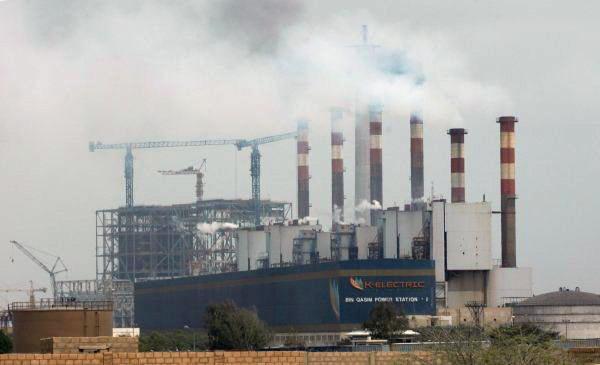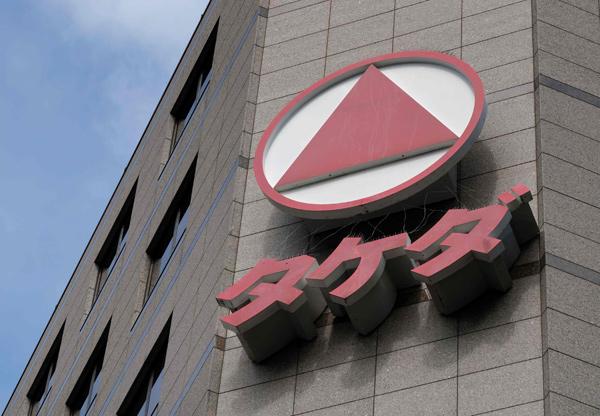You are here
Corporate deals set to rise despite global economy jitters
By AP - Oct 29,2015 - Last updated at Oct 29,2015
LONDON — There is no let-up in executives' appetite for corporate takeovers despite volatility in the stock market and mounting concerns over the global economy, particularly China.
According to a survey released this week by consulting firm EY, the recent wave of mergers and acquisitions, or M&A, is set to continue over the coming year.
It found that 59 per cent of global companies are planning to secure at least one deal over the next 12 months, partly as a means of cushioning waning global growth as China's economy slows.
The figure for October is up from 56 per cent in April and 40 per cent at the same time last year. It represents the highest interest in acquisitions that EY's survey of corporate deal making has found in its six-year history. The low point was at the start, when only 24 per cent of companies signalled the intention to make a takeover.
"With modest increases in global gross domestic product, organic growth alone is not enough for companies to expand and reshape at the pace they need," said Pip McCrostie, EY's global head of transactions.
"The search for growth is lifting deal making to record highs, and executives are focusing on M&A to secure innovation, competitive advantage and market share for the foreseeable future," she added.
M&A activity has really gathered pace this year with deal values, according to EY, already up 35 per cent on 2014 and more mega deals, those valued above $10 billion, in 2015 than in any previous year of the survey's history.
Earlier this month, the world's top two beer makers agreed to join forces to create a company that would control nearly a third of the global market. Much of the logic behind the £69 billion ($106 billion) takeover of British-based SAB Miller by Anheuser Busch InBev is to cope with faltering beer consumption in many parts of the world.
Other big deals this year include Royal Dutch Shell's ¢£47 billion ($71 billion) yet-to-be-completed acquisition of BG Group, as well as the $62.6 billion merger between Heinz and Kraft Foods, which is now called Kraft Heinz.
EY said the boundaries between industries looks set to blur, with 48 per cent of executives planning acquisitions in a different sector as new technology impacts almost everything along the business chain. The manufacturing and retail sectors are set for the most such activity.
And companies are increasingly ready to make deals outside their home country. The firm said 70 per cent of respondents are looking to do so, with the 19-country eurozone set to see a rise in deals amid hopes that the debt crisis that has gripped the region has abated following the latest bailout of Greece.
"This is down to increased confidence in the stability of the region," said McCrostie.
Though deal making has been on the rise over the past few years as the global economy recovered from its deepest recession since World War II and companies built up their cash reserves, EY says it could have been even higher. It noted that 73 per cent of executives have walked away from deals over the past 12 months.
"Executives are taking a long-term view and evaluating deals more carefully than ever before," indicated McCrostie. "They are stepping back when necessary. This is not 'a deals for deals sake mentality'."
EY's survey was based on surveys of more than 1,600 executives in 53 countries.
Separately, a new survey in the US showed that many business economists expect modest economic growth for the rest of the year, with only a small percentage taking a more bullish outlook.
Four-fifths of the experts surveyed by the National Association of Business Economics expect fourth-quarter growth of at least 2 per cent. But only 7 per cent predicted growth will top 3 per cent, down from the 16 per cent who held that optimistic view in July.
Expectations are declining for fourth-quarter wages and employment, said Jim Diffley, senior director at consulting firm IHS Inc. and chairman of the survey.
Only 29 per cent of those surveyed expect their company to add jobs in the next three months, the lowest rate this year, according to the survey. But half of the economists said their firms had trouble filling some jobs, and one-third continued to say their companies face a shortage of skilled workers.
On pay, 44 per cent expect their companies to boost wages, the weakest outlook since a survey one year ago. In the last quarter, a third of the firms in the survey raised pay, down from more than 40 per cent in each of the previous two quarters.
The group surveyed 106 economists between September 21 and October 6.
Most of the economists said the slowdown in China's growth and the strong US dollar aren't affecting their companies. Lower oil prices have helped nearly one-third of the companies and hurt about one-fifth.
The group split on whether an interest-rate hike by the Federal Reserve would make much difference to their companies.
Slightly more than half said sales rose at their companies in the third quarter and expect sales to grow again in the fourth quarter.
Profit margins shrank at 22 per cent of the companies and grew at 29 per cent. In the group's July survey, margins narrowed at only 14 per cent of companies while they grew at 32 per cent.
Related Articles
NEW YORK — As iconic brands are snapped up and corporations merged and swallowed in a record-breaking whirl of deals, there has been one con
KARACHI, Pakistan — China's Shanghai Electric power company will buy a controlling stake in K-Electric, a power generation and distribution
LONDON/TOKYO — Takeda Pharmaceutical agreed to buy London-listed Shire for £45.3 billion ($61.50 billion) on Tuesday, marking the biggest de


















